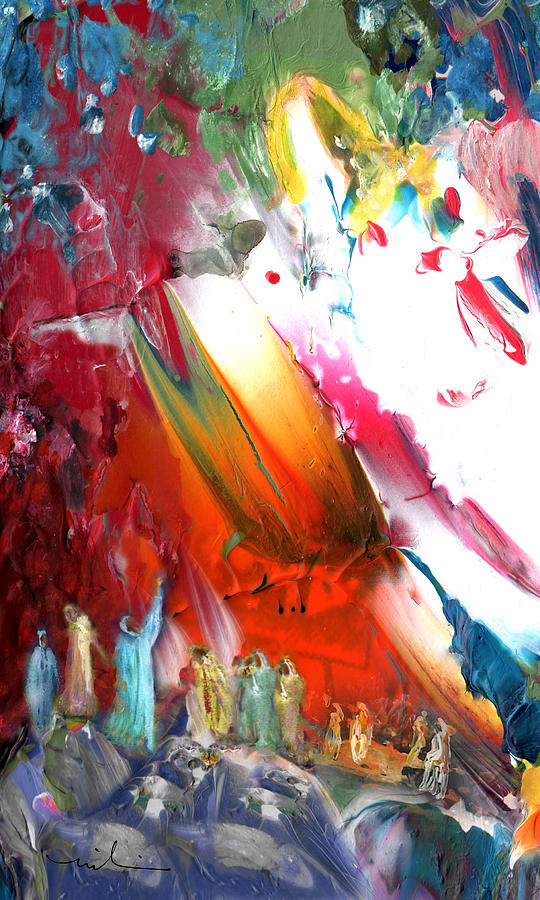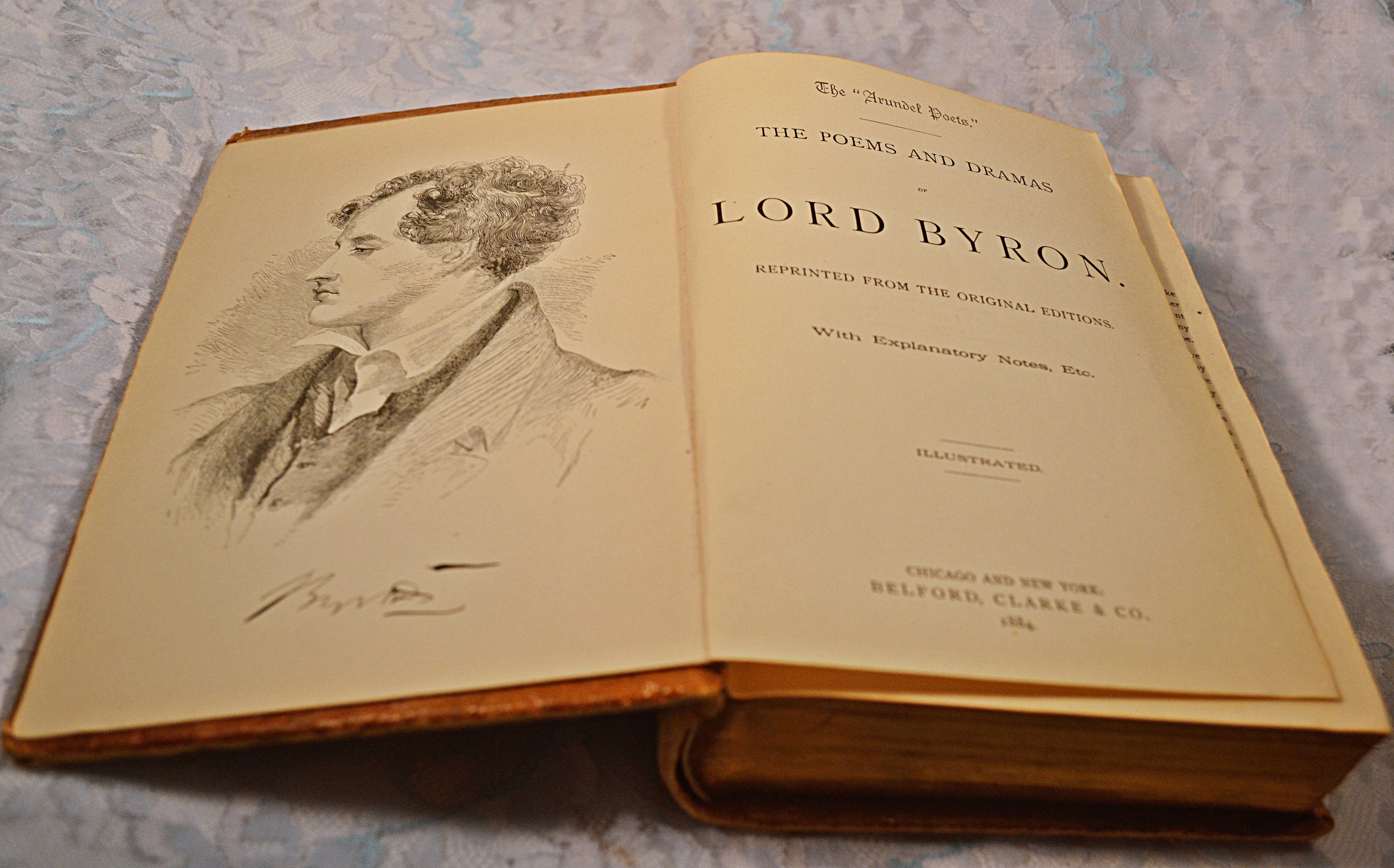
Matthew 3:1-12
In those days John the Baptizer appeared in the wilderness of Judea, proclaiming, “Turn around, for the kingdom of heaven has come near.” This is the one of whom the prophet Isaiah spoke when he said, “The voice of one crying out in the wilderness: ‘Prepare the way of the Lord, make his paths straight.’” Now John wore clothing of camel’s hair with a leather belt around his waist, and his food was locusts and wild honey. Then the people of Jerusalem and all of Judea were going out to him, and all the region along the Jordan, and they were baptized by him in the river Jordan, confessing their sins. But when he saw many Pharisees and Sadducees coming for baptism, he said to them, “you brood of vipers! Who warned you to flee from the wrath to come? Bear fruit worthy of repentance. Do not presume to say to yourselves, “We have Abraham as our ancestor;” for I tell you, God is able from these stones to raise up children to Abraham. Even now the ax is lying at the root of the trees; every tree therefore that does not bear fruit is cut down and thrown into the fire. “I baptize you with water for repentance, but one who is more powerful than I is coming after me; I am not worthy to carry his sandals. He will baptize you with the Holy Spirit and fire. His winnowing fork is in his hand, and he will clear his threshing floor and will gather his wheat into the granary; but the chaff he will burn with unquenchable fire.”
Where the Wild Things Are
Let us pray:
Stir up your power, Holy One.
You call to us from the desert of our souls
Those arid places that need your baptismal water
Again and again.
But we are like snakes: without ears, and we don’t hear well
What with all our distractions.
Send us the baptizer again.
We’ll take John
But who we really need is Jesus
Immanuel
He’s the one we’re waiting for in these Advent days.
Amen.
Greetings, Beloved!
My name is Pastor Tim Brown, and I serve the ELCA as the Director of Congregational Stewardship, though I live just up the road from you all in Raleigh, North Carolina with my wife and two crazy boys. It’s my honor to bring you blessings and greetings from Presiding Bishop Elizabeth Eaton, and all the churchwide staff. In my work in congregations, Lutheran Disaster Relief, Lutheran World Hunger, and the many missions that you all support here with your good work I have seen lives changed.
You’d helped make that happen. You make that happen. Thank you. As one of our most generous congregations in the ELCA to the life-changing work of the Gospel, I truly greet you with wonderful thanks.
Before I was the Director of Congregational Stewardship, though, I was a parish pastor both in Raleigh and before that in downtown Chicago, and I’m really grateful to have been invited to be with you on this second Sunday in Advent because out of all the seasons of the church year, Advent is by far my favorite. And some of you may remember me, as I did preach here once before, when I was young and full of dreams, during the pandemic.
Wonderful to be with you in person, and not on a screen.
What’s your favorite children’s book? Anyone?
Mine is _Where the Wild Things Are_ by Maurice Sendak.
I know it by heart. “The night Max wore his wolf suit and made mischief of one kind/and another. His mother called him ‘wild thing’ and said, ‘I’ll eat you up!’ So, he was sent to bed without eating anything at all.”
The imagine of Max in his wolf suit captivated the young me, and still today the not-so-young me. Wild things, wild beasts, wild dreams: these are the things of excitement and urgency and danger.
John the Baptizer falls into that category, the family and genus of the wild things. His manner of dress and his diet give clues to us of what stock he is from. Sure, he’s son of Elizabeth and Zechariah, but his PETA-offending clothes, his long, wild hair, and his food of bugs and honey put him in the lineage of the desert-roaming prophets: Elijah, Elisha, Amos. He calls to people from the outskirts of the city, down by the river, reminding the nice town-folk that God cares little for their attractive floor coverings, their polite language, their proper technique when it comes to exterior illumination. God doesn’t even care if they sing Christmas songs in Advent.
“You sneaky snakes,” John says. “You distract yourselves with your rules, in competition to get life right. But God is more like a farmer than a judge in a competition. In competition you get points for style and effort, but the farmer’s attention is on the heart of the fruit.”
The words of this wild John the Baptizer thing do eat us up. And the urgency is real, not manufactured like all the fake urgency manufactured by all the fake news flying around our world today. The urgency is real because, as John the Baptizer rightly says, the time is now.
It is always now. So why, Beloved, are you still living in the past or anxious about the future? The urgency doesn’t lie there; it is now.
Our ancient mothers and fathers conceived of God as being a bit wild. Why do you think the angels always open with the words, “Fear not!”? We’ve domesticated God, equating God with Santa Clause, the giver of gifts and tally-taker of who is on the nice and naughty list. But God’s encounter with Moses was not the red of a flannel suit and rosy cheeks, but a bush on wild-fire, defying physics and tantalizing the imagination.
We’ve domesticated Jesus, pretending he votes our values (or we vote his), putting him in stark white robes so that he looks like the pastor we’ve always dreamed of (with considerably more hair). But perhaps Jesus is more John the Baptist than John Smith.
We’ve domesticated the Holy Spirit, relegating her to a peaceful dove who gently alights upon shoulders and inspires beautiful paintings. But maybe the Holy Spirit is more gadfly than dove, aggravating more often than alighting. For this example, I appreciate my Celtic ancestry. They referred to the Holy Spirit as “Ah Gaedh-Glas” or “The Wild Goose,” sending the Celts on a wild goose chase, literally, as they sought out the Spirit to inform their lives.
And if God is wild, then the kingdom of God is wild.
The kingdom of God, the one John claims is near, does not look like an earthly kingdom. It looks more like, well, a wilderness: where you can’t tell who is good and who is bad because those categories don’t exist when everyone is loved. Where you can’t tell who is servant and who is ruler because everyone is servant, and therefore, everyone is ruler, and the first is last and the last is first, and who could figure out the rules of living in such a confusing world?
It’s like a strange wilderness where all rules are broken. It’s supposed to be what the church looks like.
Perhaps we’ve been domesticated by the world.
Because this world expects us to live for money, power, fame, and fortune. It expects us to reinforce the idea of who is in and who is out. Those are the rules. It expects us to love our own, take care of our own, and be with our own, and survive on our own. Those are the rules.
But in Advent we remind ourselves of this story of a lonely couple, on their own, who are trying to follow the rules even though the rules oppress them, who in their time of need become surrounded by the strangest crew, brought from the rule-breaking wild margins of society: dirty shepherds, elusive angels, and pagan sorcerers that we’ve domesticated by calling them “magi” or “kings.”
The wild one, John the Baptizer, calls to us in Advent to remind us of just who we’re waiting for: a wild one from the margins who will minister to those on the margins and who invites the church to move from the center to the wilderness of the margins.
Into the wilderness of walking with those with mental illness. Into the wilderness of walking with those who are oppressed because of their skin color, their ethnic heritage, their family ancestry. “Do not think that your family is better,” John the Baptizer tells us. “God can create families from stones to rival yours.”
Called even into the wilderness of your soul, where you will search for certainty your whole life only to have those tables overturned numerous times throughout your life. I’ve seen it, Beloved. At age 12. At age 33. At age 40 (we’ve domesticated it by calling it mid-life crisis, but it’s really a table-flipping feeling, as if everything is upended). At the empty-nest stage. At the death of a partner, parent, lover, child.
In these wilderness places we hear the voice of God speak, cutting through all this fake news we watch on TV and post on our social media, that fake news that creates a fake urgency.
And in the wilderness place we hear the voice of one, crying out for us saying: I love you; you are mine. Crying out with us: my God my God, why have you forsaken me? Crying out on behalf of us to God: Forgive them, they know not what they do.
And only a wild goose of a God who loves with such wild abandon, who is willing to break the rules to love and forgive those broken open on the so-called rules of the world, can swallow our lives, sinliness and saintliness…all of it…into the waters of baptism, into the heart of grace.
Look, I know. I know some of you feel like you’re in a wilderness time. The bed at night is empty. The job is mindless, or non-existent. The marriage is empty. The chemo leaves you empty. The pantry is empty. For some democracy seems empty. For others civility seems empty. In these post-pandemic days the pews feel emptier. The emptiness seeks to devour us, or at least it feels that way. I know it because I at times feel all that, too.
But, Beloved, even as we wait for Christ in the manger, perhaps the real truth is that the Wild Goose is on the loose even now, always now, chasing us down in our wilderness spaces, seeking to infuse those empty places of our lives with the wholeness that comes only from a God who is wild and more powerful than any other wild thing seeking to devour us.
At Christmas we are reminded that God always invites us to dine at this table of continual grace in the wilderness of our lives, and that God sends those other things that try to devour us to bed, to the grave.
Without eating anything at all.


 And there appeared to them cloven tongues like as of fire, and it sat on each of them. Acts of the Apostles, 2:3
And there appeared to them cloven tongues like as of fire, and it sat on each of them. Acts of the Apostles, 2:3


 John 15:4-5
John 15:4-5
 I have my grandmother’s poetry books.
I have my grandmother’s poetry books.
 [Jesus said to the disciples:] 1“Do not let your hearts be troubled. Believe in God, believe also in me. 2In my Father’s house there are many dwelling places. If it were not so, would I have told you that I go to prepare a place for you? 3And if I go and prepare a place for you, I will come again and will take you to myself, so that where I am, there you may be also. 4And you know the way to the place where I am going.” 5Thomas said to him, “Lord, we do not know where you are going. How can we know the way?” 6Jesus said to him, “I am the way, and the truth, and the life. No one comes to the Father except through me. 7If you know me, you will know my Father also. From now on you do know him and have seen him.”
[Jesus said to the disciples:] 1“Do not let your hearts be troubled. Believe in God, believe also in me. 2In my Father’s house there are many dwelling places. If it were not so, would I have told you that I go to prepare a place for you? 3And if I go and prepare a place for you, I will come again and will take you to myself, so that where I am, there you may be also. 4And you know the way to the place where I am going.” 5Thomas said to him, “Lord, we do not know where you are going. How can we know the way?” 6Jesus said to him, “I am the way, and the truth, and the life. No one comes to the Father except through me. 7If you know me, you will know my Father also. From now on you do know him and have seen him.”


 [Jesus said:] 1“Very truly, I tell you, anyone who does not enter the sheepfold by the gate but climbs in by another way is a thief and a bandit. 2The one who enters by the gate is the shepherd of the sheep. 3The gatekeeper opens the gate for him, and the sheep hear his voice. He calls his own sheep by name and leads them out. 4When he has brought out all his own, he goes ahead of them, and the sheep follow him because they know his voice. 5They will not follow a stranger, but they will run from him because they do not know the voice of strangers.” 6Jesus used this figure of speech with them, but they did not understand what he was saying to them.
[Jesus said:] 1“Very truly, I tell you, anyone who does not enter the sheepfold by the gate but climbs in by another way is a thief and a bandit. 2The one who enters by the gate is the shepherd of the sheep. 3The gatekeeper opens the gate for him, and the sheep hear his voice. He calls his own sheep by name and leads them out. 4When he has brought out all his own, he goes ahead of them, and the sheep follow him because they know his voice. 5They will not follow a stranger, but they will run from him because they do not know the voice of strangers.” 6Jesus used this figure of speech with them, but they did not understand what he was saying to them.
 What is the first song you remember singing?
What is the first song you remember singing?
 13Now on that same day [when Jesus had appeared to Mary Magdalene,] two [disciples] were going to a village called Emmaus, about seven miles from Jerusalem, 14and talking with each other about all these things that had happened. 15While they were talking and discussing, Jesus himself came near and went with them, 16but their eyes were kept from recognizing him. 17And he said to them, “What are you discussing with each other while you walk along?” They stood still, looking sad. 18Then one of them, whose name was Cleopas, answered him, “Are you the only stranger in Jerusalem who does not know the things that have taken place there in these days?” 19He asked them, “What things?” They replied, “The things about Jesus of Nazareth, who was a prophet mighty in deed and word before God and all the people, 20and how our chief priests and leaders handed him over to be condemned to death and crucified him. 21But we had hoped that he was the one to redeem Israel. Yes, and besides all this, it is now the third day since these things took place. 22Moreover, some women of our group astounded us. They were at the tomb early this morning, 23and when they did not find his body there, they came back and told us that they had indeed seen a vision of angels who said that he was alive. 24Some of those who were with us went to the tomb and found it just as the women had said; but they did not see him.” 25Then he said to them, “Oh, how foolish you are, and how slow of heart to believe all that the prophets have declared! 26Was it not necessary that the Messiah should suffer these things and then enter into his glory?” 27Then beginning with Moses and all the prophets, he interpreted to them the things about himself in all the scriptures.
13Now on that same day [when Jesus had appeared to Mary Magdalene,] two [disciples] were going to a village called Emmaus, about seven miles from Jerusalem, 14and talking with each other about all these things that had happened. 15While they were talking and discussing, Jesus himself came near and went with them, 16but their eyes were kept from recognizing him. 17And he said to them, “What are you discussing with each other while you walk along?” They stood still, looking sad. 18Then one of them, whose name was Cleopas, answered him, “Are you the only stranger in Jerusalem who does not know the things that have taken place there in these days?” 19He asked them, “What things?” They replied, “The things about Jesus of Nazareth, who was a prophet mighty in deed and word before God and all the people, 20and how our chief priests and leaders handed him over to be condemned to death and crucified him. 21But we had hoped that he was the one to redeem Israel. Yes, and besides all this, it is now the third day since these things took place. 22Moreover, some women of our group astounded us. They were at the tomb early this morning, 23and when they did not find his body there, they came back and told us that they had indeed seen a vision of angels who said that he was alive. 24Some of those who were with us went to the tomb and found it just as the women had said; but they did not see him.” 25Then he said to them, “Oh, how foolish you are, and how slow of heart to believe all that the prophets have declared! 26Was it not necessary that the Messiah should suffer these things and then enter into his glory?” 27Then beginning with Moses and all the prophets, he interpreted to them the things about himself in all the scriptures.